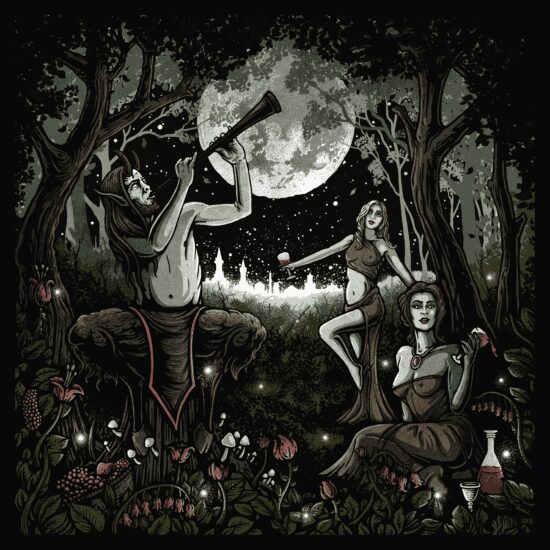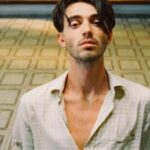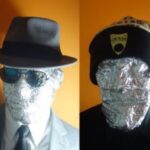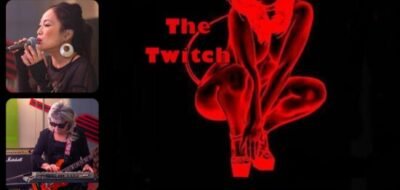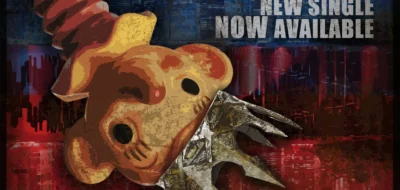The goal of any band should be to create something unique and original. Not only in the music but also in the brand and image. This is what sets certain artists apart and puts them on a projector towards greatness. Our recent discovery The Fae is a prime example of building to something new.
We had a chance to chat with the imagination multi-dimensional metal band to get behind the scenes. Enjoy the interview here:
First off, tell us about the name The Fae?
When I needed to find inspiration for a band name, I went to my usual source: literature and folklore. The fae/faeries are an old myth from all over. Many cultures see them as a kind of otherworldly spiritual being, or use them as a stand-in for long dead peoples that preceded their own. We still use the word “fairy tales” for magical stories that we tell children, but the older tales are usually much more sinister. I played in thrash bands for years and the ideas I was bringing to the table were usually deemed “too gay”, so I liked the idea of having a name that was kind of effeminate and fanciful on the surface but with a darker undertone. The Fae was a perfect fit.
How would you describe the band’s sound?
Well, for this first album, The Fae sounds like a 70’s band with bigger arrangements and metal chops. Or maybe a melodic metal band with a vintage sound and a flair for the dramatic? A prog band who doesn’t try to rub it in your face like they just got out of music school? When I was writing this record I was all about composing lots parts that fit together in perfect counterpoint, while still making songs that any listener can have fun and bang their head to, and leaving the band some room to groove and breathe. A lot of different compositional techniques are happening in these songs, but my ultimate goal is that none of it sounds forced or takes the listener out of the experience – each new song comes as a surprising twist, but the whole thing has an arc to it.
What has been the biggest influence on the music of The Fae?
We’ve all been playing music for a long time at this point, so it all starts to mix together. This record’s got a lot of 70’s rock, metal, classical, and folk inspiration, and Nico and Emma bring their own more subtle and dynamic sensibilities to the table. If I had to pick a single influence for what we’ve done so far, it’s probably the early Queen records. They have a great mix of rock and roll and early proto-metal that’s heavy as hell. But also these very sophisticated compositions, fantasy-inspired lyrics, and a huge variety of styles are present on each album. I spent a few years being really obsessed with Queen I, Queen II, Sheer Heart Attack, and A Night at the Opera (we even cover a song from the latter on this record), and I think it shows in the music.
After many years in the metal genre what prompted the change in direction?
The change was actually a matter of my returning to my original goals. I’d started out as a classic rock and prog fan, which led me to the more virtuosic metal bands as a teenager. In college I met a thrash band and that took off, which led to dropping out of school, moving to LA, and getting into the music industry. I liked playing that music – loud and fast is a LOT of fun, after all, and record deals and tours were happening – but after quitting Warbringer I was so burned out on that style. I swore that I’d never tremolo pick again, haha! I actually had a good bit of input on the record I did with Warbringer, but in all the thrash bands I was in, I was always told that my ideas were too complicated, too cheesy, or too gay. It had started to feel like I was wearing a costume; it fit well and I enjoyed wearing it, but it wasn’t really me.
Then I joined Gygax and realized that I’d become a pretty good rock and roll player, and that I found it to be way more musically fulfilling. But I didn’t have much creative input, and I found the band’s “nail it note for note” live approach pretty stifling. It sounded great, but I was looking for more dynamics, more surprises, more of that Dionysian improvisation that attracted me to bands like Led Zeppelin and Deep Purple in the first place. We played with The Great Electric Quest a few times and the sheer audacity of their live show blew me away and made me sure that I had start my own band.
How does a song come together for The Fae? What is the songwriting process?
The original idea can come from anywhere. Usually, it’s a melody or chord change from a classical or folk piece, or a book I’m reading. I like for every song to feel like it exists in a scene, so I’ll find some feeling that I want to paint as a big musical picture: the wistfulness of the character who can’t return to the halls of glory, driven mad with yearning at the end of a fairy tale, for “Faerie Rock”. Or the urgency and disorienting complexity of Severian’s story for “A Song for Severian”.
Then I think about how I can bring that across musically – for “A Corner of Avalon” it’s all the extended harmony that gives it these gorgeous layers like dappled light, and “The Singer and the Seven” has that beer-spilling, tavern-stomping riff but also the wailing, sorrowful instrumental parts. Finding inspiration this way keeps me from repeating myself, which is something I really want to avoid with this band.
Welcome To The World of The Fae
What can you tell us about your recent album Books With Maps(Volume 1)?
A lot of love went into this record, from my writing to Nico’s brilliant work as a producer, and Emma’s rock solid musicianship that allowed us to keep the feel live without using any time correction. We recorded the instruments in just a few days, and then spent three years trying to find a singer before I finally stepped into the role.
The track list might look short, but there’s a LOT of music happening in these songs. We tried to walk a fine line, making music with depth but always with a solid thread that guides the listener so they’re never lost in gratuitous prog nonsense. Each set of lyrics has a surface impression and a deeper meaning, like all good stories. Like Faeson, the faun on the album cover, the record resides in a realm of dualities, trapped between two worlds. Is it rock or is it metal? Is the sound polished or dirty? Is it out-there or catchy? I still don’t know the answer to any of these questions and I think that conflict is the real inspiration.
Share some advice for other bands creating unique brands around their music?
I don’t know if I’m qualified to answer, but I can provide one thing that I learned in all my musical travels and hangs with bands from all over. This probably applies to any music but it DEFINITELY applies to metal: your metal is only as interesting as the non-metal music that you listen to. This genre has been around for 40 years and it’s pretty much charted territory, so if you’re going to play it by the book you’d better have great songs and look cool as hell and play shows that tear the house down. Because for fuck’s sake, we really do not need another “guitar player plays the main riff while the band does cymbal choke accents, then they all play the riff together (with one of 3 drum beats) while everyone strikes the same pose they learned from an Iron Maiden DVD” section, do we?
Like I said above, it’s a fine line. Every genre has conventions in composition and performance and appearance that work for a reason, and give the audience something familiar and fun to connect with. But I grew up on power metal and that genre is seriously written like they’re filling in the blanks of mad-libs at this point. Be real, be honest, find your own way, and it’ll be unique.
Give us a look at the future of The Fae?
Our goals for 2023 are simple enough: we want to make more music and do another tour! During the last 3 years of singer-hunting, I wrote a lot of music. “Books with Maps (Volume II)” is already partially written and I’m beyond excited to share it with everyone. We cover a lot of ground on the first record but there are still a lot of stones left unturned – I’ve got a song that’s giant and spacious and doomy, a verse that’s nearly a dance beat, some improvised open-tuning country-pickin’ shredding, and some Debussy-inspired psychedelic splendor, to name a few.
We also picked up a guitar player! Conan Gonzalez of Exmortus was a hired gun on our first tour, and it clicked musically and personally right away. It really felt like we’d all been friends for years, so we’re going to have him with us on the next trip and hopefully many more to come. We hope to meet you all on the road!
Discover more about The Fae HERE.



